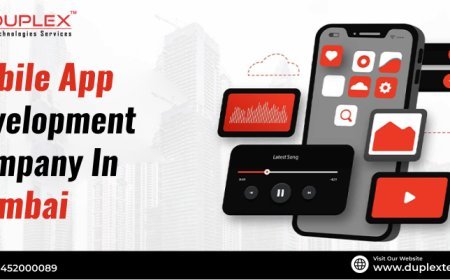The Role of Storytelling in Winning International Business Class Awards

Introduction
In a world filled with data, numbers, and polished presentations, one timeless element continues to captivate judges, audiences, and stakeholders alike—storytelling. Whether you're a tech startup in Lagos, a fashion designer in Nairobi, or a social enterprise in Cape Town, storytelling is the bridge between your business goals and the hearts of the people who can help you achieve them.
This is especially true when it comes to international business class events and prestigious recognitions like the international business awards in Africa, the International awards in Paris, or even the more entertainment-driven Brit Awards 2025. While innovation, impact, and revenue remain critical judging criteria, it is often the power of your story that differentiates your application from the rest.
In this blog, we’ll explore how storytelling plays a vital role in winning international awards, why it matters, and how to craft compelling narratives that resonate with global panels and audiences.
1. Why Storytelling Matters in Award Submissions
At their core, awards are about more than metrics. They are about meaning. Judges aren't just looking for performance—they're looking for purpose.
Your numbers may be strong, your impact measurable, and your growth curve impressive. But if your story doesn’t resonate, you risk being just another applicant with good stats. What turns data into inspiration, and progress into legacy, is your ability to tell a genuine, emotional, and memorable story.
Storytelling gives your journey depth. It adds context to your achievements and brings your mission to life. In the case of international business awards in Africa, storytelling often highlights the unique challenges faced by African entrepreneurs—and the creativity and resilience used to overcome them.
2. Global Awards Thrive on Human Connection
When you present at a prestigious award platform like the International awards in Paris, you’re not just competing with local entrepreneurs—you’re sharing space with global visionaries. In such a competitive environment, facts alone aren’t enough. Judges want to feel something.
Storytelling introduces the human element:
-
Why did you start this business?
-
What personal experience drove your mission?
-
How have your customers' lives changed because of what you created?
-
What obstacles did you face, and how did you overcome them?
This emotional depth is what sticks in the minds of judges long after they’ve reviewed a dozen other entries. It makes your application not just impressive—but unforgettable.
3. Examples from Award-Winning Stories
Let’s take a look at what powerful storytelling has achieved:
-
At a recent international business awards in Africa, a Rwandan agritech startup shared how the founder’s childhood experience of food insecurity inspired him to develop a data-driven crop monitoring tool. The story created empathy and positioned the founder not just as an innovator—but as someone solving a problem they deeply understood.
-
A Ghanaian fashion designer nominated at the International awards in Paris spoke about using locally sourced materials and empowering women weavers in rural areas. The judges were moved not just by the fashion, but by the cultural preservation and empowerment woven into the fabric of the business.
-
Even at the Brit Awards 2025, behind every hit song or artist is a story—of resilience, identity, struggle, or celebration. These narratives influence voting and public support as much as talent.
In all cases, storytelling acted as the heartbeat of the pitch—turning impressive facts into compelling legacies.
4. Components of a Powerful Award Story
Crafting a strong story doesn’t mean writing a novel. It means structuring your message in a way that connects emotionally while still delivering key business points. Here’s what it should include:
a) Origin:
Why was your business born? What problem were you trying to solve? Was there a personal experience, a gap in the market, or a life-altering event?
b) Journey:
What did the road look like—highs, lows, pivots, failures, learnings? Be authentic. Judges appreciate vulnerability and realism over perfection.
c) Transformation:
What is different now because of your business? For you, your customers, your community, or even your industry?
d) Vision:
What comes next? How does your story continue to evolve, and what future impact do you aim to create?
When you use this narrative framework in your application, you guide judges through your brand’s evolution in a way that’s relatable and emotionally engaging.
5. Tailoring Your Story to the Award’s Purpose
Different awards have different values. Your story should reflect and align with the mission of the award itself.
For instance:
-
The international business awards in Africa often focus on scalable innovation, community impact, and sustainability. Here, storytelling that emphasizes local change and empowerment resonates strongly.
-
The International awards in Paris tend to value luxury, creativity, design thinking, and cultural influence. A story rooted in artistry and vision will stand out.
-
The Brit Awards 2025, while music-centric, reward authenticity, cultural relevance, and emotional connection. Stories that speak to identity, heritage, or bold expression are especially impactful.
Tip: Always read past winning entries or finalists to understand the tone and themes that resonate with the judging panel.
6. Using Visuals and Testimonials to Strengthen the Story
Storytelling isn’t just written—it’s visual, verbal, and experiential. Supporting your written story with images, short videos, customer quotes, or third-party testimonials can bring your submission to life.
Photos of community projects, videos of product use in the field, or quotes from real beneficiaries show the tangible impact of your work and build credibility. These elements allow judges to not just understand your story—but to feel like they’ve been part of it.
If allowed by the award submission guidelines, embed these materials strategically to elevate your narrative.
7. Storytelling in Live Presentations at Business Class Events
For awards that involve pitching or live presentations—like those during international business class events—your storytelling must also come through in person.
In these scenarios:
-
Start with a story instead of a slide.
-
Use your own voice—not corporate jargon.
-
Show emotion: humor, passion, sincerity.
-
Practice pacing, pausing, and tone to enhance delivery.
Your goal is to not just inform the judges but to move them. When done well, storytelling in person creates immediate connection—and often gives you an edge over competitors with slicker slides but colder delivery.
8. Avoiding Common Storytelling Mistakes
While storytelling is powerful, it must be done right. Here are mistakes to avoid:
-
Overdramatizing or exaggerating
Authenticity matters more than theatrics. -
Focusing only on struggle without highlighting success
Judges want to know you’ve made progress. -
Being too vague or generic
Make it personal and specific to your journey. -
Ignoring your audience
Your story must resonate with the values of the award body.
Tip: Have someone outside your industry read your story—if they’re moved or inspired, you’re on the right track.
9. The Long-Term Impact of Storytelling Beyond Awards
The benefits of great storytelling don’t end with winning. A compelling narrative can be reused across investor pitches, brand campaigns, website content, and media features. It becomes your company’s brand DNA, one that continues to inspire trust, loyalty, and engagement across all stakeholders.
In fact, many winners at global awards report that their story—not just their stats—is what got them featured in global media, invited to conferences, or contacted by new partners.
So, when you craft a story for an award, think of it as an asset—not just a submission.
Conclusion: Turn Your Business Into a Story Worth Celebrating
In the fast-paced world of business and innovation, numbers will always matter. But what truly separates the winners from the crowd—especially at prestigious platforms like the international business awards in Africa, the International awards in Paris, and even cultural icons like the Brit Awards 2025—is the ability to connect, inspire, and leave a lasting impression.
Storytelling is the bridge between your work and the world’s recognition of it. So tell your story with heart, courage, and clarity—and let it carry you from application to applause.
What's Your Reaction?































































